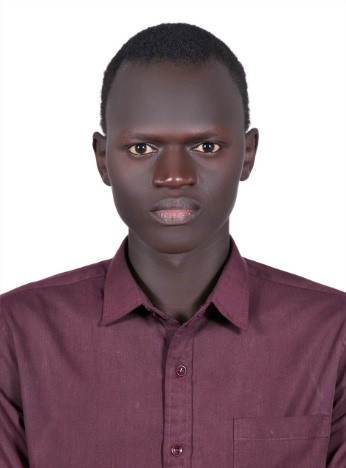By Agar Mayor Gai-Makoon
The key thing about the healthcare system is that when it is malfunctioning, everything else gets affected.
According to studies, nations with strong healthcare systems are more productive, happier and generally peaceful. In light of available resources and competing needs, stable healthcare system seeks to enhance health of the population and this is the primary goal of the system.
In South Sudan, the healthcare system is yet to achieve its goal. And the worse is that it is very difficult to point out areas of weakness. Because just like other sectors, inherent healthcare problems have been shadowed by the conflict. And as we wait for the conflict to fully resolve, frustrations of poor health keep growing. And perhaps, the cycle of state failure keeps rotating.
So, what should the health institutions do other than wait for the conflict to settle? Remember that a strong healthcare system is the gateway to state productivity and peace. I think it is easier to attain peace through building a strong healthcare system than entering into agreements that are difficult to fulfil because what is fueling the conflict is unproductivity and hunger. And as the healthcare system fights against it, it is very simple to end the conflict when the healthcare is going the right way.
There are five elements of a stable and resilient healthcare system that must be available for the benefits of good health to ensue.
- Leadership and governance. Under limited resources and competing needs, it is always good to have leaders whose goal is a health system that benefits all. Getting good leaders is not a perfect science but the most important thing is having that leader who understands the vision of the institution, and his role in making it a reality. Healthcare system development requires leadership that is objective, independent and well aware of the obstacles to stable and resilient health system.
- Service delivery
Health, METHINKS, is the most important service that people can enjoy from their government. With it, one has the chance to wait for other services. And perhaps, a good health system must have a service delivery model that makes sure that health needs of people are met timely and adequately. Hospitals and clinics are the points of health service delivery. And the fact that they are limited in South Sudan makes the health service delivery model chart meaningless and non-beneficial. South Sudan needs more healthcare centers so that the delivery is simplified and helpful to all the people. PHCUs, PHCCs, and county hospitals should have enough ambulances and communication channels that facilitate their work. It is by doing this that we can be able to save more people at the grassroots who perish because of inaccessibility to the right service delivery points.
- Health system financing. Health is an investment. The more resources directed into its functions; the more people enjoy its benefits. Today, our health system funding is left to the donor agencies. More than 80% of funding comes from foreign aid—thanks to Health Pooled Fund and the World Bank for their generous support to the South Sudan health sector. And given that support, South Sudan’s health situation is still very fragile. The health sector is unable to provide the health needs of the populace because it is less funded. Most projects phrased by the South Sudan Ministry of Health have not prevailed due to lack of funds. It is high time the government prioritizes health and makes sure it holds a bigger percentage of the national budget and priorities. We need a stable health system more than any other in this critical time.
- Health Workforce
South Sudan has a very limited number of doctors and other health personnel. According to a report, the doctor-to-patient ratio is 1/100,000. It means that if the eleven million South Sudanese are sick at once, one doctor attends to 100,000 patients. The outcome would be worse because a single doctor cannot save the lives of such a huge number of patients. So, there is a need for more doctors in South Sudan so that in every part of South Sudan, people can be able to meet their health needs. The Ministry of Health should develop mechanisms that encourage more students to enroll into medical school, increase doctors’ pay and deploy them in areas of need. The few health professionals prefer to work in the capital leaving the bigger population in the states and counties at a higher risk. Each county hospital should have enough physicians and at least, one surgeon.
- Medical products, vaccines and technologies
The setback in health is that no matter how medically educated and qualified doctors are, they cannot work without drugs, vaccines and technologies that help in diagnosis and management of diseases. So, in this era, Medicine without such things is useless and even deadly. Availability of medicines, and diagnostic technologies is very critical for the growth and success of any healthcare system. The Ministry of Health has to make sure that government hospitals are always loaded with enough medicines for the health target to be complete and helpful. State and county hospitals should be provided with basic diagnostic technologies like X-rays and ultrasounds. More advanced radiology tools like CT scans and MRIs should be available in Juba Teaching Hospital, Al Sabaah Children’s Hospital and Juba Military Hospital. And later, when the system is more stable and resilient, it is better to have all these diagnostic technologies in every government hospital across the country.
The issue of misuse and diversion of medicines to private clinics is a devastating exercise and has made health costly. It is incumbent upon the Ministry of Health and the Aid agencies to curb this practice. The country cannot afford to have the health made expensive for the local people at these moments. Expensive healthcare means more suffering and death for the people of South Sudan. And any doctor that supports this practice is not in line with Hippocrates’ principle; As to diseases, make a habit of two things—to help or at least to do no harm.
The writer has a background in Socio-Political Philosophy. He studies Medicine in Egypt.




